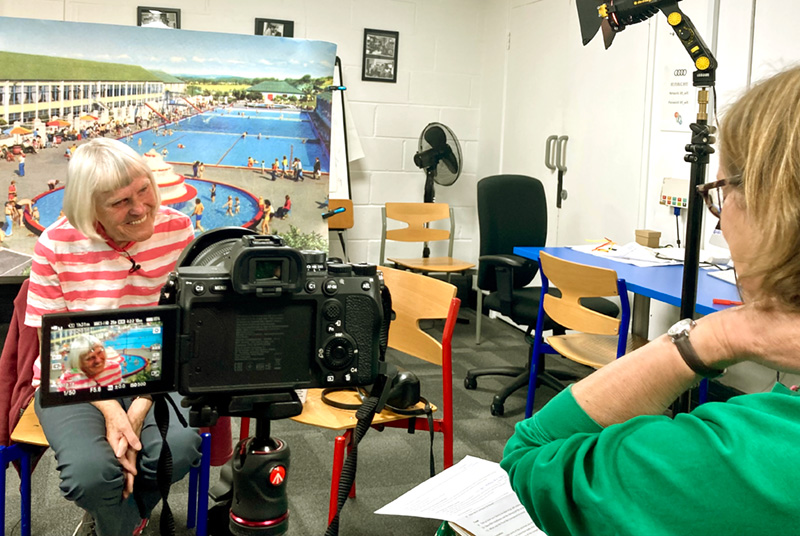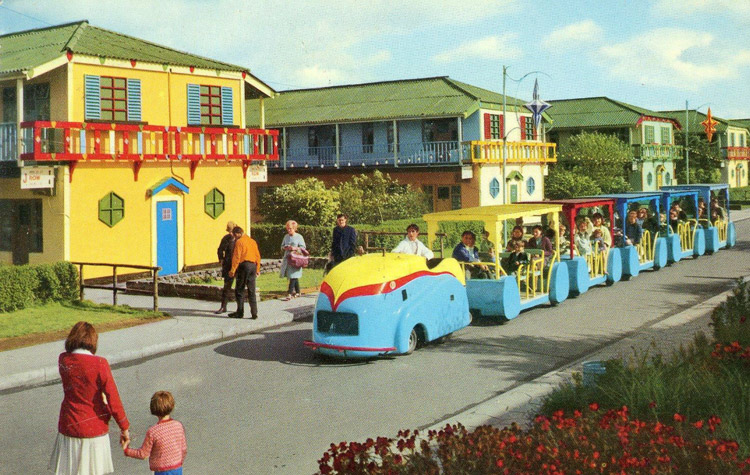An Oral History of London's Holiday Campers.
This project is set up and run by educational charity digital-works.
Digital-works has run many projects exploring the history of work in London. In this project we turn to leisure, and more specifically to the holiday camps such at Pontins and Butlins that London’s workers visited in increasing numbers from the 1930s to the 1980s after which their popularity declined in the face of cheap package holidays.
The 1938 "Holidays With Pay Act" was the culmination of a 20 year campaign from Unions and, for the first time, made holidays affordable to working class people. For many, trips to these camps were the first time they had been on holiday, replacing the hop picking or boarding house holidays of their parents’ generations. Londoners would flock to sites such as Bognor Regis, Camber Sands and Caister and further afield. In addition to the well known names of Butlins, Pontins and Warners, there were holiday camps run by local authorities as well as trade Unions such as NALGO (now Unison) which still has a site at Croyde Bay in Devon. Caister had a "socialist camp" which opened in 1906 offering cheap holidays to working class people from the East End of London.
People would travel as young men and women, later with their families, and then with children and grandchildren. These holidays formed a backdrop to their working lives, a highlight of the year. The culture and activities of these camps link to Britain’s past, to music hall, the outdoors movement, to socialism and trade unionism. They were a place where Londoners met people from other parts of the country for the first time, mixing in dining halls, bars, singing together, playing sport and dancing. These holidays could also allow women, whether they were housewives or working, a break from housework as many opted for fully catered holidays. They also reflect social change, the growth of mass tourism, of the growing wealth of the working class in London, and the growth of foreign package tourism that led to their decline.
This project uses oral history as the primary means to research, record and share this heritage.
We trained 12 people in heritage and oral history techniques covering how to develop an oral history project, interview skills and audio recording skills as well as researching and developing themes and questions. They then worked in teams using these skills to conduct and record oral history interviews with 24 people.
The full interviews have been deposited with Bishopsgate Institute.
This project website houses all of the full interviews, the podcasts, the film and cover the progress of the project.
This project is run by digital:works working closely with the British Film Institute.
We are grateful to the National Lottery Heritage Fund for their financial support.

digital:works has been running oral history projects across London working with communities to explore the history of work and workers in the capital. Projects so far include printers on Fleet Street, bus workers, underground workers, black cab drivers, jewellers in Hatton Garden, tailors in Saville Row, the Thames Lightermen, Thames boatyards and more. Other projects explore the history of Battersea, North Kensington, Southall, Eel Pie Island, as well as some of London’s indoor and street markets. If you would like to see any of these wonderful films and find out more about digital:works please visit:
www.digital-works.co.uk.

Oral history specialists digital-works are working with the BFI on a project that will explore the history of Londoner's experiences of British holiday camps.

We are inviting people to join this wonderful project. You will be part of a team, attend talks from historians, meet holiday campers, go on a behind the scenes tour of a a holiday camp and receive training in oral history techniques including interview and audio recording skills. After training you will be interviewing campers, workers and others involved in the industry leading to the production of a documentary film. You will need to be available for three training days [dates to be confirmed].
No experience needed. Expenses covered. All welcome!
If you are interested in taking part in this fun and informative activity please contact Sav for more information at sav@digital-works.co.uk
Oral history specialists digital-works are working with the BFI on a project that will explore and record the history of Londoners visiting or working at British holiday camps.

We are looking for anyone who can spare an hour to share stories of their memories.
The interviews will form an important addition to Bishopsgate Institute's archive and will form the basis of an educational documentary film.
To find out more please contact:
Matthew Rosenberg
mat@digital-works.co.uk or
07949 107023
